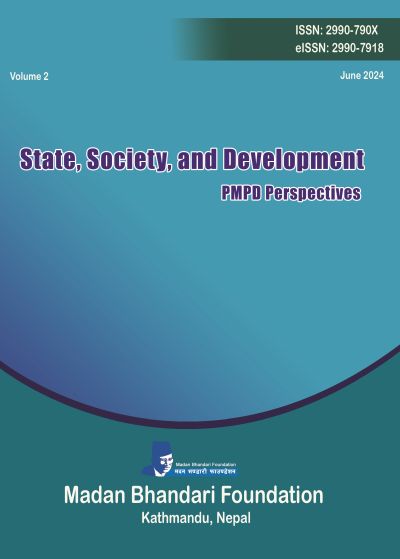People’s Multiparty Democracy: A Base to Socialism
DOI:
https://doi.org/10.3126/ssd.v2i01.67224Keywords:
People’s multiparty democracy, Alliance and integration, Socioeconomic transformation, SocialismAbstract
Madan Bhandari, an iconic revolutionary leader, formulated People’s Multiparty Democracy (PMPD), a groundbreaking political framework in Nepal rooted in the Marxist-Leninist ideology. Bhandari’s PMPD emphasizes socioeconomic transformation to eliminate discrimination and dismantle remnants of feudalism and imperialism. This article examines the essential alliances and integrations among parties with socialist ideologies, highlighting their significance in the ongoing debate over effective and equitable governance. It investigates the origins and core principles of PMPD and its roadmap to socialism in Nepali context. The main findings of the research suggest that placing governmental control in the hands of the people, focusing on socioeconomic transformation, fostering social ownership, promoting economic equality, and ensuring cultural and material preparedness are critical elements of PMPD’s path to socialism. By adopting PMPD’s guiding principles, Nepal can develop its own unique model of socialism.
Downloads
Downloads
Published
How to Cite
Issue
Section
License
Once published, an article in this Journal is not permitted to publish in other journals or similar publications without the permission of the Foundation. Contents and perspectives presented in the articles in the journal are solely of the authors.




